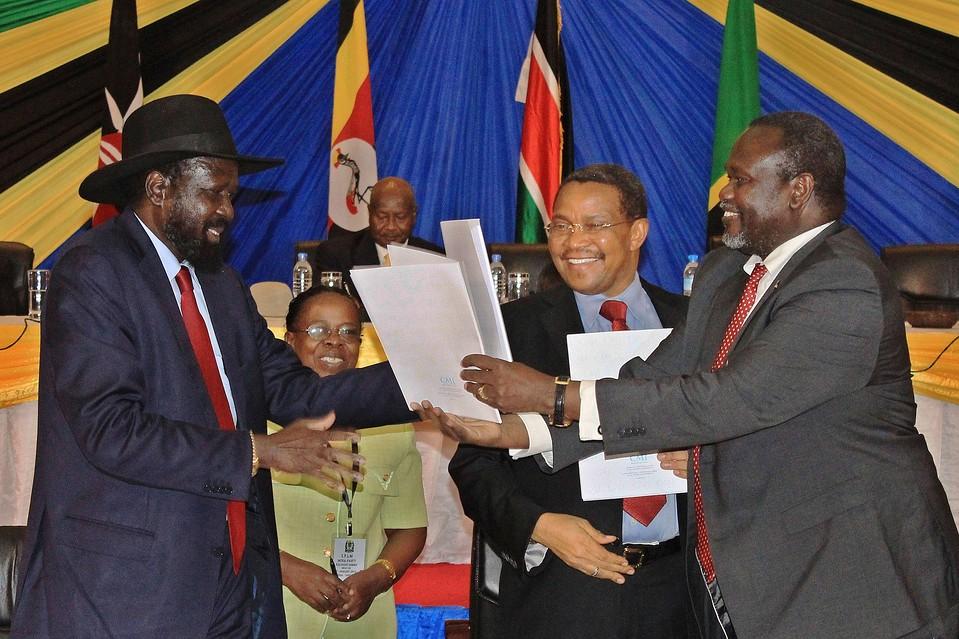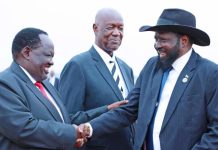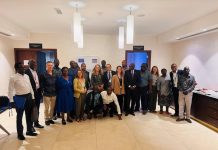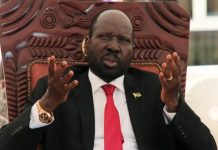Africa-Press – South-Sudan. A country cannot develop, if it were locked up in anarchy. Which anarchy could have been brought about by social or political unrest. Anarchy can arise as a direct result of insurgency caused by rivalry or disagreement between political Leaders. Anarchy might have also been occasioned by unsuccessful revolution for change (Libya during Arab Spring of Intifadah).
It’s, therefore, the responsibility of leaders of such a country to cooperate with one another to bring the conditions of anarchy to an end, if their country could have hopes for development. That is exactly what the people of South Sudan (SS) expect from their leaders. It would appear that SS leaders have some challenges in that respect. Because of lingering mistrust between political and military leaders, that has in effect led to disagreement and open hostility, rendering any attempts for peace futile. Hence, the hard question: ‘Who Has the Capacity and Willingness to Help South Sudan Achieve Peace?’
As there is deepening mistrust between the political and military leaders of SS, it’s difficult to imagine how those leaders could be brought together to negotiate, in good faith, in order to conclude real comprehensive peace agreement (RCPA), with all the parties concerned, including civilian political leaders who are in SS, or elsewhere in the world, but who would like to see peace returns to SS. RCPR suggests that CPA was never comprehensive, as it was concluded between only two parties – government of Sudan, and SPLM/A – to the armed conflicts in southern Sudan.
This article presupposes that mediation of a different kind may pave the way for SS to regain tranquility and its people to see genuine and enduring peace. Mediation with a difference suggests that there were attempts at mediation, but those attempts have not yielded promising results, for various reasons. One was lack of authentic neutrality and the presence of threats of sanctions. The envisaged mediation and mediator or mediators, whether a state, two or more states, or an individual, or individuals, are expected to demonstrate the capability and resolve to mediate, without taking side, between participants with conflicting visions, but who have stakes in peace for SS.
It has been difficult to restore peace in SS, in the aftermath of the bloody events of December 2013, because of the persistence of discordance of visions of political, military and traditional leaders. Prof. Francis Deng has examined this problem in his book War of Visions. A book that leaders of SS, and any citizens of SS, need to read. The persistence of such discordance requires mediating processes in order that differences are bridged and consensus obtained that should lead to the signing of RCPA to restore peace in SS. The mediating arrangements should preferably be carried out by a mediator or mediators – a state or states, that are impartial.
There is fierce rivalry between political and military leaders. Rivalry has degenerated into fighting between armed groups and political actors across SS. Armed groups that are at war, against one another, and against Juba government, include: SPLM/A, SPLM/A – IO; SS Defence Forces; SS Democratic Movement; SS Federal Democratic Party; SS Opposition Alliance; SS Patriotic Army; SS People’s Defence Forces; SS United Front; Arrow Boys; NSF/A; Nuer White Army; SPLA/ Nasir; NRA (of Jada); 7 October Movement; and many newcomers residues of defections. The rivalry between and amongst the above has made any attempts at mediation or the conclusion of real comprehensive peace agreement very frustrating, if not impossible. However, the world communities should continue to help SS achieve lasting peace.
This article considers that to mediate for peace in SS, it should be undertaken by a state or states due to costs and time involved: The world communities are fed up with SS because of the unending, bloody warfare taking place across the country. Many countries have made several attempts to get the political, military, traditional, and civic leaders of SS to agree to end warfare in the country. Countries such as, Eritrea, Ethiopia, Kenya, Scandinavian countries, SA, Sudan, Tanzania, Uganda, etc, have tirelessly attempted to mediate peace for SS. But their noble intentions were frustrated by continuing fighting in SS.
At times they were viewed by armed groups as friends of Juba government. Such suspicion is a hindrance to obtaining agreement for peace in SS. The Juba government also has on a number of occasions declined to take part in mediated negotiations claiming that the mediators were promoting the positions of opponents to Juba government: “rebellion should not be rewarded.” But majority of governments in Africa arose from ashes caused by rebellions.
This article is supplicating other countries to try to mediate peace for SS. The people of SS have suffered unprecedented hardships. These must be brought to an end by determined and concerted actions by all peace loving nations. Countries the article is suggesting include: Angola, Brazil, Botswana, Equatorial Guinea, Germany, Ghana, India, Liberia, Morocco, Mozambique, Qatar, Rwanda, Senegal, Zambia, and many others. Mediation proposals from any of the countries listed may be welcome, accepted and respected by all stakeholders in SS. This article ventures to claim that Qatar and Zambia would win the endorsement of all stakeholders, if they were to make such a move for the restoration of peace in SS.
It’s a challenging undertaking, to try to mediate peace for a country, where political, Military, traditional and civic leaders are in disagreement on how political, social stability and peace can be restored in South Sudan. The mediator should understand the views, visions and agenda of each one who has stakes in peace for SS. Such an understanding will enable the mediator to find common purpose and consensus for dialogues. A process of dialogues is recommended due to its flexibility and amenability to “take and give”, if carefully planned.
For More News And Analysis About South-Sudan Follow Africa-Press






